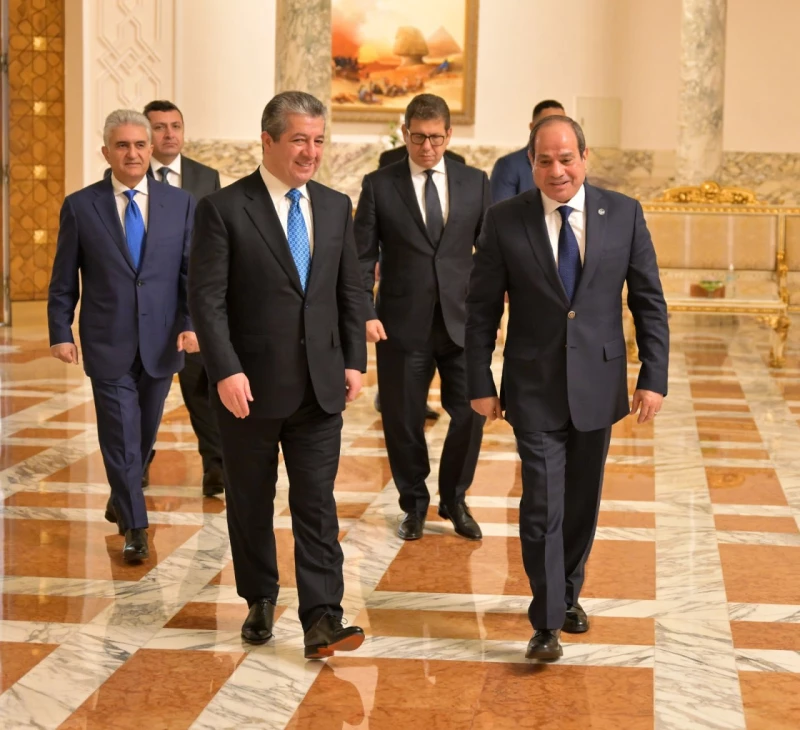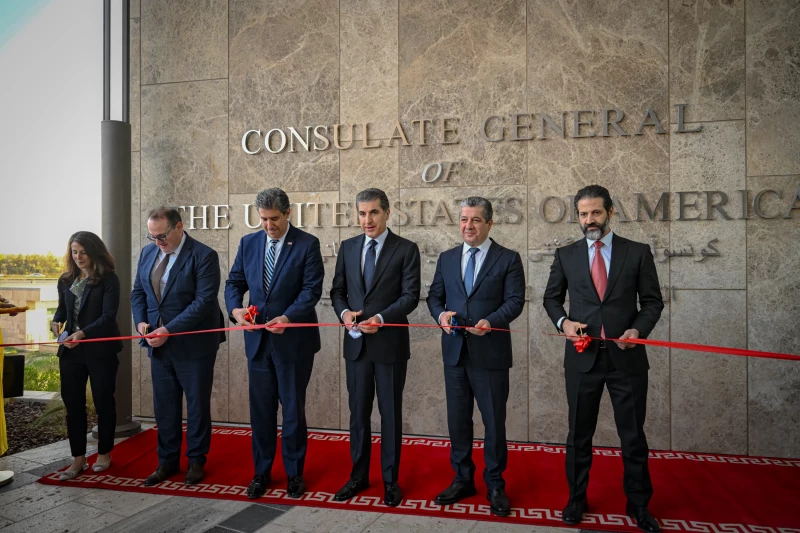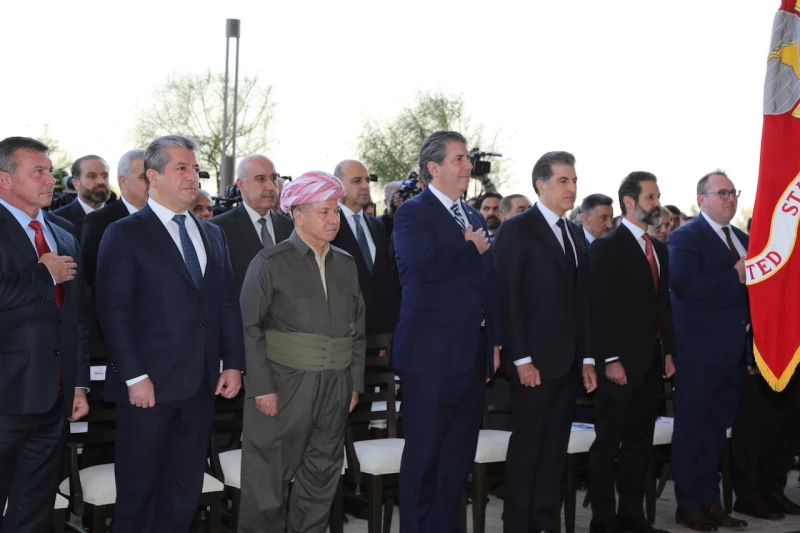Public diplomacy (PD) refers to how public actors both inside and outside of government engage foreign publics in order to shape their perceptions, as well as to attain a variety of related ends. In contrast to the world of traditional diplomacy, which is the domain of official government representatives, PD intersects the open space of the media, culture, and people-to-people engagement, where prestige and trust play their role in affirmation. Critically, PD is not restricted to state actors, and indeed a sub-state region or non-state entity may practice it. It is thus, for the Kurdistan Regional Government (KRG) and the wider Kurdish people, an essential tool in these parties' efforts to build an international profile and create support for their political and cultural goals.
This piece offers an analytical interpretation of PD and its potential and actual application, highlighting how the KRG has and may continue to use these strategies, as well as referencing international case studies from the US and Qatar to better understand where the Kurdish approach stands. It also discusses the opportunities for the KRG in expanding its brand power through PD, and the role played by Kurdish individuals and civil society in this regard, striving to articulate how a stateless nation can harness the power of storytelling and the engagement of the world.
Learning public diplomacy and soft power
PD is frequently discussed in the context of soft power, which is to say the ability to attract and co-opt rather than coerce. In short, PD is the soft power stick. This means cultural diplomacy, international broadcasting, exchange programs, advocacy initiatives, and all types of communication aimed at informing or otherwise affecting foreign publics. Although outreach is an aspect of PD, it is important not to be confused with propaganda, as PD has, and requires, its basis on transparency and believability in the communication of values or national policy. For countries with limited hard power, or states-in-waiting like Kurdistan, public diplomacy is a way to “punch above their weight” by influencing global opinion and establishing good will. This is not to say that nonstate actors such as the KRG, and even sub-national actors including the Kurdish diaspora, cannot engage foreign publics to tell their own narratives; scholars such as Eytan Gilboa remind us that "public diplomacy may be practiced by nonstate actors as well as by states." PD’s wide-ranging application is an indispensable weapon for the Kurds as they struggle for recognition and support outside the parameters of statehood as we understand it. Using soft power assets including their own rich cultural legacy and heroic history of suffering and recovery, as well as a general reputation for openness and moderation the Kurds can project an appealing image that can strike a chord outside their region. In the next sections, we discuss how the PA serves main and position players at the global level, and then we try to introduce the case study of Kurdistan region.
An international case study: US public diplomacy
The United States is frequently held to be a world leader in public diplomacy, having long integrated it into its foreign policy toolkit. American PD is also multi-pronged: you have educational and cultural exchanges; international broadcasting (Voice of America etc.); language and cultural centers; study grants. “These activities promote American values and create personal relationships that can lead to enduring strategic influence,” a report on US PD said. Federally funded exchange programs, including Fulbright and the International Visitor Leadership Program, are considered “among the most powerful and cost-effective instruments of US foreign policy,” generating “citizen ambassadors” who return home with first-hand knowledge of, and often affection for, American society. Decades of such people-to-people exchanges have produced an avalanche of evidence that they are an excellent investment, generating the good will, shared democratic values, and expanding economic and security partnerships that only face-to-face contact can bring. Exchange and other PD programs are, in the words of a former US Undersecretary of State, “a reflection of the highest ideals of American values” and convey a nation’s values in ways adversarial powers find hard to emulate.
Outside of these abundant exchange programs, the US capitalizes on pop culture, film and music (Hollywood, for example, is a global soft power asset), and the branding of international aid to project its appearance to the world at large. The American example suggests that a strategic, well-funded PD apparatus can indeed dramatically boost a country’s international standing, and through the manipulation of foreign public opinion help encourage foreign publics to embrace a country’s policy objectives. The US example serves as a powerful illustration of the need for perseverance: through its large expenditure and numerous programs, it has established a “gold standard” that would-be PD practitioners, including the KRG, would do well to study as an example of successful outreach and relationship building.
A case from the Middle East: Qatar’s soft power strategy
In the Middle East, there is an example of successful public diplomacy from a small country: Qatar. The tiny Gulf state has proved adept in its use of PD and the instruments of soft power, availing of them to promote its international visibility and increase its influence. Central to the Qatari strategy has been its investment in global media. The Qatari state-owned Al Jazeera Media Network is generally seen as the key component of Qatar’s public diplomacy strategy. Its sprawling, 24-hour news operation (in several languages) has established a reputation for credibility among viewers across the Arab world and around the globe. By offering a forum that sometimes challenges the narratives of larger neighbors, Al Jazeera has granted Qatar outsized clout in regional discourse. Some commentators have even neologized an "Al Jazeera effect", suggesting that Qatar, by media means, is able to influence public opinion of events - such as the Arab Spring - in a manner that stretches and reinforces its foreign policy position.
Outside the media, Qatar uses cultural and sports diplomacy to project the image of a modern, dynamic state: hosting global events, from world athletics tournaments to high-profile conferences. For example, hosting the FIFA World Cup was not a sports project, but a PD coup through which Qatar’s status as a hub of global gathering was beamed to billions of people around the world. Qatar has also wanted to engage in nation branding by offering Western universities the opportunity to set up campuses in Doha and by funding museums and heritage projects in order to draw attention to openness and global partnership. The Qatari case suggests that in a region of centrifugal competition, but with a coherent PD strategy that integrates media, culture, and diplomacy, a tiny state can still produce impact on influence and prestige. For an entity lacking hard power, and in a region in which political and geographical boundaries are constantly being redefined, with crippled states being revived (Somalia), or truncated (Syria, Yemen), the experiences of Qatar teaches that investing in establishing soft power, through credible media voices, or through international cultural outreach, can be a matter of survival and opening doors in a difficult geopolitical neighborhood.
Public diplomacy in the Kurdistan Region
The KRG, which governs the Kurdistan Region of Iraq, offers an interesting case of a non-state actor involved in virtual-diplomatic relations. While not a fully independent country, the KRG has developed a significant international profile over the years. In the case of the KRG, this para-diplomacy is also represented by the establishment of representation offices across a large number of states. Such overseas missions are designed to reinforce the presence of the Kurdistan region in the international arena, and to secure the region’s interests, forge alliances, and garner political and economic support for the Region's autonomous status. Through such channels, Kurdish officials keep up a dialogue with foreign governments and international organizations on topics ranging from security cooperation to investment to humanitarian aid. Impressively, its role in regional security has only enhanced its diplomatic presence. For example, the KRG’s Peshmerga forces gained international recognition for its frontline war against the Islamic State (ISIS_, something that was facilitated by goodwill and security relationships with Western superpowers. Such security cooperation has been a kind of PD in its own right, as by cooperating with global counter-terrorism measures and supporting civilian refugees in time of war, the Kurds conveyed a picture of themselves as a trustworthy and humane partner which strengthens their international legitimacy.
Cultural diplomacy is another front KRG has been focusing on. Kurdish culture, language, and history provide a positive story that appeals to audiences around the world, and is appreciated because it is presented as a zone of indigenous tolerance and enterprise. The marking of Kurdish heritage abroad, from Newroz (Kurdish New Year) festivals in diaspora communities to Kurdish film and music on global stages, does much to humanize the Kurdish narrative. This act of cultural outreach has not only drawn in the Kurdish diaspora, but has also made the Kurdish cause more visible to the world. There are easier ways to win friends and influence people but more seriously, Kurdish identity tends to be its own form of soft power: historical protests and aspiration to self-determination have generated sympathies from many quarters, including among international observers which turns to diplomatic backing over issues like human rights or local autonomy. The KRG has been forward-leaning in seeking this sympathy, highlighting the plight of Kurds who have merely sought to preserve and express their indigenous culture. So how else have things changed or could change to ensure the political will to protect the Kurds is not played with or manipulated when another war not of their making ends or winds down and their future lies in the balance? Kurdish leaders of the past have learned the importance to engage the global media and policy-makers, for example: during the crisis of the 20th century, Kurdish politicians took themselves for enjoying as subjects of interviews to international journalists as if there is no Tom, Dick, and Harry, Garry, or Larry in the world where memory of their vain braves lie as a history!
The KRG also made an investment in professional public relations over time. Most prominently, it instigated an aggressive media campaign, “The Other Iraq”, aimed at marketing the Kurdistan Region as a separate, orderly, even prosperous place, unrelated to the violence in the rest of Iraq. Supported by high-profile lobbying firms in Washington DC, that effort had the goal of drawing foreign investment and support by emphasizing Kurdistan’s stability, pro-Western bent, and economic promise. The knowledge that there was a time when American television watchers would be prompted: “Have you seen the Other Iraq?” images of Kurdish prosperity and pro-American sentiment highlight just how brazenly the KRG applied modern PD techniques in the pursuit of international recognition. While such endeavors have enjoyed some success today, “Kurdistan” is more widely recognized around the world than at any time in decades; often it is viewed as a separate entity within Iraq. Yet Kurdish officials and scholars acknowledge that there is much more still to do. As one analyst observed, “for too long ‘this case [for Kurdistan] has been presented to too few members of the world’s public,” and what the Kurds “will require is a much more sophisticated public diplomacy if they are to achieve their objectives” of wider recognition. In summary, the KRG has built the right foundations in diplomacy and building an image, but needs to continue to improve its PD strategy to make the most of the goodwill it has generated and to address the remaining political challenges.
KRG and nation branding opportunities
In the future, the KRG has large room for the platform of public diplomacy to build upon its track record and work on branding the Kurdistan Region to the wider world. The most important means is economic and cultural branding and to portraying Kurdistan as an open, secure, and thriving region. Recent decisions indicate that the KRG is eager to avail of this possibility. In the Region, the new stage can be seen in new initiatives aimed at economic diversification and attracting tourists, such as the establishment of a new tourism brand ‘Visit Kurdistan’ by the KRG as part of a strategy explicitly to develop a Kurdish nation brand in a global market for the region. Officials in the KRG described at this initiative’s launch how for the Kurdish region, with the right focus, tourism is more than an economic “kick-start; it is a means of ‘promoting regional diplomacy and furthering our identity across the globe”. This is a well-ordered way of summing up the PD opportunity in economic development. Every foreign tourist who has their expectations exceeded with the warmth of Kurdish hospitality and gets a better sense of a unique culture is an informal ambassador for Kurdistan. Through showcasing the stunning natural beauty of the region along with the ancient history and newfound safety and tolerance, the KRG can respond to the outdated stereotype of a war-torn territory with a description of a “globally competitive” destination in the Middle East.
Another option for branding can be found in Kurdistan’s offering as an energy and investment destination. The Kurdistan Region is endowed with significant oil and gas reserves, and it has encouraged international energy companies to develop them. When paired with economic partnerships and messaging about win-win success, prosperity, and promising for Kurdish reliability as a friend and business partner, the KRG will be seen as a land of opportunity. This might mean holding investment fairs, attending expos abroad, promoting success stories of foreign companies who have flourished in Erbil and Sulaimani. Furthermore, the KRG’s belief in values appealing to Western audiences, such as religious tolerance, gender equality, and schooling, can resonate and create a brand for a modern and pluralistic Kurdistan as a progressive hub in the Middle East. The Region has, for example, frequently emphasized how it shelters religious minorities and has women in high-profile positions, setting it apart from some of its neighbors. Investing in international media and think-tanks to communicate these good governance stories, the KRG could bolster its soft power legitimacy.
Digital diplomacy is another unused potential. The KRG can use social media to speak face-to-face with worldwide audiences; and indeed, a Facebook page has even been found as being an instrument of disseminating and discussing information between the KRG and foreign citizens. A joint digital effort, telling good human interest stories, showcasing Kurdish cultural sites, and quickly exposing falsehoods, would aid in the real-time maintenance of the Kurdistan brand. Finally, cultural and academic exchange programs, anchored in the Kurdistan Region, could be broadened. Hosting students, academics, journalists, artists, and the like, to come to, and work in, Kurdistan (universities can host or hold conferences and cultural festivals can introduce a different part of the world to a people otherwise isolated) generates first-hand experiences that frequently turn into long-term good will. These are all channels that the KRG could utilize to present a uniform and appealing brand; in the form of tourism, investment, governance values, digital outreach and exchanges. Different parties and movements would also have a chance to differentiate themselves by moving from reactive communication to the controlled narrative that they consider strategic, the one that tells the world not only what Kurdistan is not (not terrorist, not dictatorship, or unstaibility) but what it represents and proposes.
Kurds in Public Diplomacy: The role of individuals and civil society
Public diplomacy is not just for governments. In the context of the Kurds, there are individuals and NGOs, as well as diaspora communities, who have proven to be effective ambassadors and representatives for the Kurdish cause. The Kurdish communities in Europe and North America are the most notable. With a population of over several million and mostly integrated in the countries in which they live, the diaspora Kurds are one of international subjects playing an intermediary role for their nation as a whole. “They could be used as cultural ambassadors, policy advocates and economic connectors for Kurdistan Region, as one policy analyst put it, "by spreading the light of Kurdish culture, pushing policy in the right direction, and smoothing business arrangements." Strategically engaging this diaspora can have incredibly positive results in shaping Kurdistan’s soft power.
Kurdish diaspora organizations, for example, are known to organize cultural festivals, art exhibitions, and public seminars showcasing Kurdish music, food, history, and statelessness, as well as conveying the message of the people's survival and resilience. This kind of grass-roots cultural diplomacy humanizes the Kurds and inspires compassion in ways official statements may not. Diaspora advocacy groups are also directly political: Kurdish activists and community leaders lobby legislatures and governments across the globe, in places like the United States, the United Kingdom, Germany, and elsewhere, for support in battling ISIS or recognition that past war crimes against Kurds, like the chemical attack on Halabja, should be classified as genocide. This has paid off over the years by way of concrete results, from foreign aid reserved for Kurdish refugee camps to resolutions that censure the oppression of Kurds. Kurdish-Americans also created powerful networks in the United States and have active members who can advocate the Kurdistan Region’s case to think tanks and the Congress on an ongoing basis. They are able to do this in local terms and values, and often evidence of this has played out in some of the evidence as to diaspora PD actors being seen as validating as insiders in Western contexts.
Outside of the diaspora, other non-state actors are affecting Kurdish PD. Kurdish academics, writers, and artists working abroad often use their platforms to draw attention to Kurdish issues. A filmmaker from Kurdistan who takes an award at an international festival, or a novelist whose work finds an audience worldwide, is, thus, calling attention to the Kurdish experience. These personal stories have the potential to change foreign public opinion. Kurdish social media influencers also have the power to provide their views to broad audiences, particularly younger generations around the world. Even those among the Kurds’ foreign friends, such as the overseas experts who once fought alongside Peshmerga forces or the journalists who covered Kurdish territories, become an unspoken corps of ambassadors, relaying testimonials that help Sweden believe fate and Kurdistan’s image as a brave and humanitarian society.
The KRG can lend support to and capitalize these nonstate PD initiatives by creating official channels for coordination or facilitating their existence: for example, liaison offices in the diaspora, or cultural centers housed under the Department of Foreign Relations that specifically allocate funds for Kurdish cultural events and language classes, or media production on the part of Kurds abroad. Institutionalizing diaspora engagement recognize that the Kurdish people are one of Kurdistan's greatest soft power resources. In short, the Kurdish people themselves, in Kurdistan and abroad, are the ultimate public diplomacy powerhouse. Their tales and testimonies humanize the politics of the Kurds, enabling those beyond their borders to regard Kurdistan as not an impersonal territory on a map, but a community of familiar people with a universal hunger for freedom, peace and prosperity.
“Public diplomacy is never easy, but it will be crucial in shaping the future of Kurdistan.” This wisdom, offered by a university anthropologist in the field of diplomacy, underscores a fundamental consideration: that the Kurds’ road to international recognition runs through more than simply military victories or formal treaties, but through the shaping of public opinion in other countries.
Conclusion
The Kurdish example illustrates how public diplomacy can be a game changer for pending-state actors. Through analyses of successful PD models, such as the United States’s robust exchange programs and Qatar’s media-based soft power campaigns, the KRG and Kurdish civil society can learn from and build upon these strategies. The Kurdistan Region has done a good job thus far; it has established an international presence, earned some goodwill through relative stability, and even embarked on its own narrative independent of its war-torn surroundings. To fully exploit PD, the KRG must keep telling its story of a long-oppressed people that has built a pluralistic, vibrant region willing to engage constructively in the world. The opportunities for branding Kurdistan as a cultural and economic gateway and tapping the support of its diaspora and allies are all there. Consistency, authenticity, and imagination in these efforts will be critical.
The Kurds have been the beneficiaries of international sympathy and support for a long time; through good public diplomacy, they can turn such sympathy into enduring partnership. In a world that is shaped by image and perception, and where politics often follow images, Kurdistan’s capacity to represent itself in an appealing and positive manner is likely to influence its political fate. The better the Kurds become at public diplomacy, the greater the chance that the day will come when their voice will take its place in the comity of nations as a reflection of the justice of their case and the depth of their culture.
The views expressed in this article are those of the writer and do not necessarily represent the position of The New Region

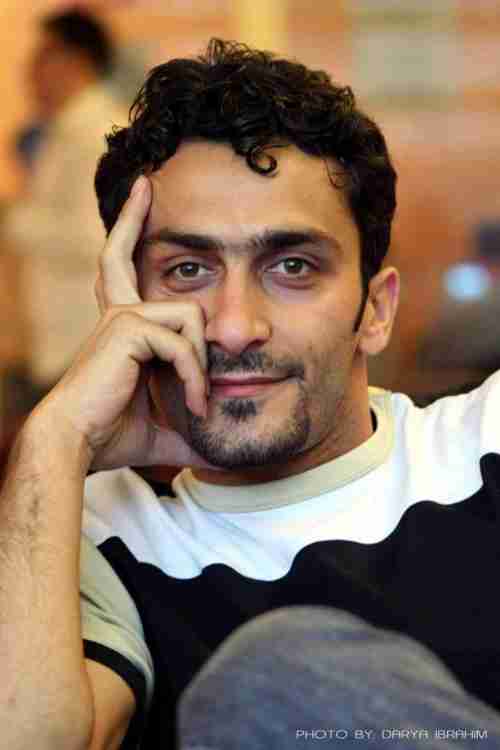
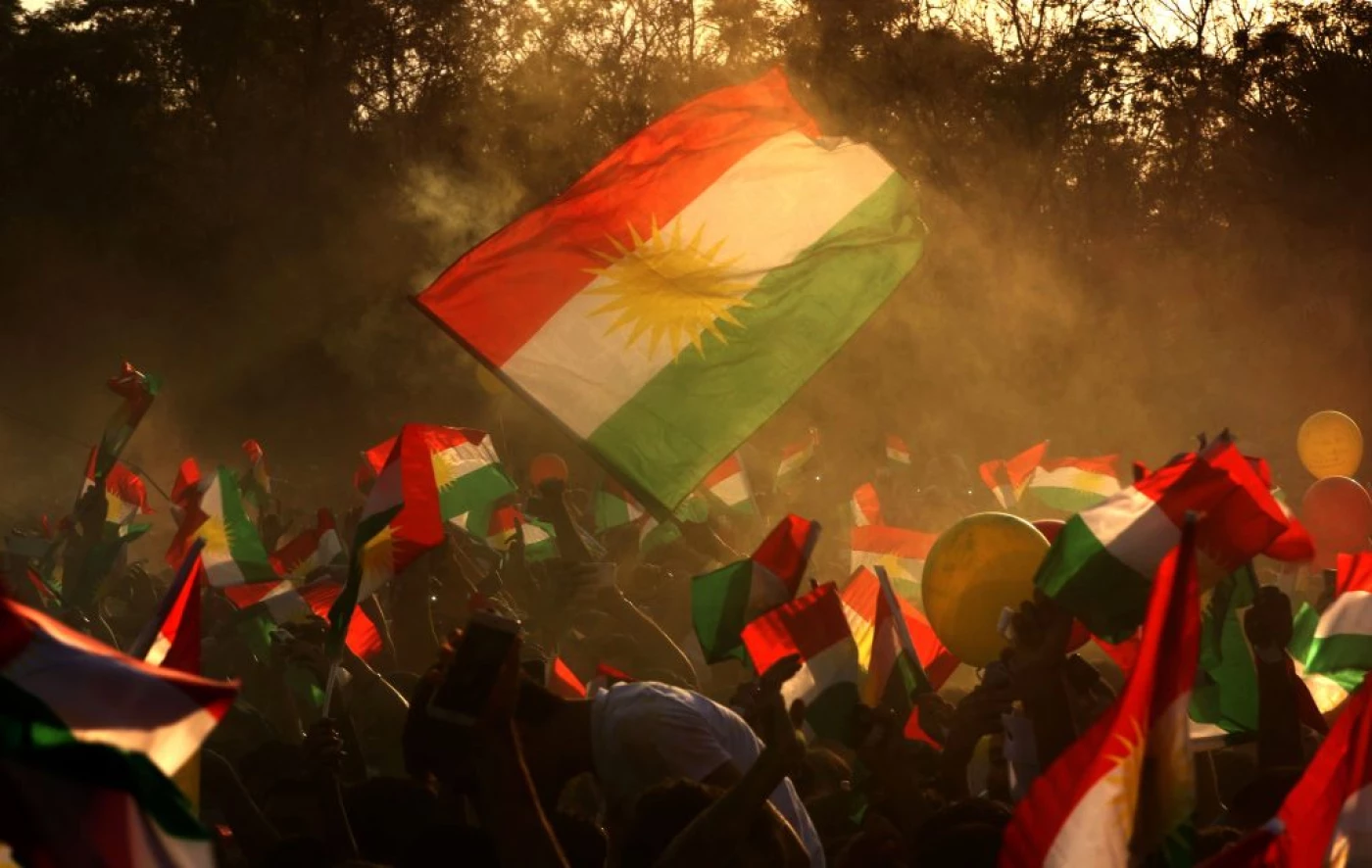
 Facebook
Facebook
 LinkedIn
LinkedIn
 Telegram
Telegram
 X
X
